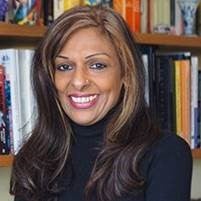About the Conference
The Faculty of Arts and Office of Research are convening an international, interdisciplinary conference, From Targeting in Academia to Promoting Trust and Understanding, taking place on our campus June 27 to 28, 2024.
Institutions of higher learning are environments where new ideas, visions, and discoveries are cultivated. In these environments, unexplored areas offer the space for curiosity to flourish and for rigorous enquiry to deepen understanding. It’s where professors and students conduct extensive research in the continuous pursuit of knowledge, trust, understanding, and justice. These pursuits are enriched through diversity of thought and perspective in an environment where we strive for a spirit of pluralism.
Unfortunately, universities, including our own, can be the target for attacks by those who may feel threatened by this important work and the impact it has on society. The conference responds to this challenge, and, in particular, it is part of a broad institutional response to the hate-motivated attack that occurred in a University of Waterloo classroom on June 28, 2023.
“The shocking attack shows how desperately our world needs more human understanding,” Dr. Sheila Ager, Dean of Arts, wrote earlier this fall. “If knowledge is power, then greater knowledge of ourselves should give us the strength and capacity to combat the forces of hatred, bigotry, and violence, whether in society or in ourselves.”
"This conference is the culmination of Waterloo's Antagonism and Intimidation in Academia speaker series, which discussed hostile responses to research in many disciplines and provided an opportunity for broad engagement with our community," said Dr. Charmaine Dean, Vice-President Research and International. "In addition to considering the culture and climate on our campuses, we have enhanced security and safety measures."
Led by Dr. Suzan Ilcan, Professor and University Research Chair, Special Advisor on Interdisciplinary Research, the conference will bring together scholars, from within and outside of Canada, who work from a wide variety of fields across academia. “The purpose is to underline experiences of how we engage in cooperative and valuable conversations, share tools or approaches that are working well, and cultivate critical thinking skills, openness, and freedom of expression,” says Dr. Ilcan. Conference participants will discuss ways in which we can foster debate with those who defend opposing views. Within and alongside these common themes, attention will be given to the issue of trust and the role it plays in higher education, in government, and in other associated spheres.
Keynote Speakers

Dr. Kalwant Bhopal
Professor of Education and Social Justice,
University of Birmingham, UK
How has Black Lives Matter affected racism in education? Social justice, Inclusion and White Supremacy
This lecture will examine how Black and minority ethnic staff and students remain marginalised in higher education. It will provide statistical data on the inequalities experienced by staff and students, followed by empirical research on Black and minority ethnic academics in UK and US higher education. By drawing on empirical research, the lecture will also explore how processes of whiteness and white privilege work to perpetuate the white space of higher education. The lecture will conclude by examining possible ways forward for higher education to engage with a socially just agenda for the inclusion of all groups.

Dr. Richard Moon
Distinguished University Professor,
Law Professor, University of Windsor, Canada
Does Free Speech Have a Future?
Free speech doctrine took shape before the rise of the internet and does not map easily onto our new communication landscape. Social media have contributed to a new set of speech harms or risks, while at the same time making the regulation of harmful speech more difficult. Forms of speech that in the past may not have been regarded as sufficiently harmful to justify their legal restriction, have become more harmful or dangerous in the online world. The principal threat to public discourse may no longer be censorship, and state censorship in particular, but rather the spread of disinformation.
Conference Abstract Topics
- To what extent are targets chosen by discipline, by gender, by race, by political stance, by sexual orientation, by religion? Who is engaged in the targeting, and why?
- Are there differences in the kinds of threats/attacks between the diverse targeted groups, and, if so, what are the structural forces that underlie these differences?
- What relationships might exist between targeting to silence academics through intimidation or violence, and “official” sanctions against the exploration of certain academic subjects (e.g., the controversy at Hamline University, the ban on teaching some subjects, and proactive EDI measures, in Florida)?
- How is targeting affecting academic freedom? In what ways are targeted academics navigating the blurred boundaries among academic freedom, freedom of expression, and hate speech? What are the principles and policies that should guide us in preserving academic freedom and freedom of expression while also addressing instances of hostile attacks that may hinder the educational environment and the well-being of the community?
- What harms are produced by targeting, such as health, well-being, creativity, and the ability to teach well and conduct research well? What strategies can be employed to counteract these harms?
- What can be done within universities to create a widespread sense of safety among those groups who might feel targeted or feel that they could be targeted? How can leadership at academic institutions support individuals that are affected by targeting? How can certain interest groups, professional associations, or sectors, such as government, support universities and individual academics dealing with targeting in academia?
- What does safe dialogue look like in practice, and what examples of tools, mechanisms, or approaches have we seen or used that have worked to cultivate this?
- What are the connections (in rhetoric, funding, organizational support) among seemingly separate contentious social and environmental issues?
- How, and to what extent, does promoting trust and understanding assist in creating a welcoming cultural and social academic environment?
- How can scholars and academic institutions effectively foster transnational solidarities among and with targeted academics without losing sight of the contextual differences and challenges specific to each academic environment?
Agenda
Conference Outcome Details
There are several outcomes we hope for from this conference. This conference makes it possible for participants to meet and discuss academic and pedagogical matters on the theme, to foster transnational networking, and to engage in future research and pedagogic collaboration with other groups. Additionally, Professor Suzan Ilcan, along with several other Guest Editors, will be involved in producing one or more special journal issues on topics dealing with Targeting in Academia. Lastly, the conference will contribute to discussions on academic freedom and the principles of freedom of expression.
For more information about the University of Waterloo’s freedom of expression report and committee activities, see: Freedom of Expression Task Force.
Conference Coordinating and Support
Lead Conference Organizer:
Dr. Suzan Ilcan, Professor & University Research Chair, Special Advisor on Interdisciplinary Research
University of Waterloo PhD Students:
Lana Gonzalez Balyk, Global Governance, Balsillie School of International Affairs (BSIA)
Pınar Ensari, Visiting PhD Student, Global Governance, BSIA
Bob Fantina, Sociology and Legal Studies
Neela Hassan, Sociology and Legal Studies
Meray Sadek, Sociology and Legal Studies
Sana Shah, Sociology and Legal Studies
Dean of Arts Office:
Wendy Philpott, Communication Manager
Research Office:
Ad hoc Conference Advisory Committee
University Relations:
Kathy Smidt, Director, Internal and Leadership Communications
Office of the Associate Vice-President, Faculty Planning and Policy:
Jennifer Dalicandro, Administrative Assistant and Financial Coordinator
On-Site Services:
UWaterloo Creative Studio
UWaterloo Catering and Event Services
Sherwood Systems
Conference Funding Provided By:
Dean of Arts Office
Research Office
Provost Office
